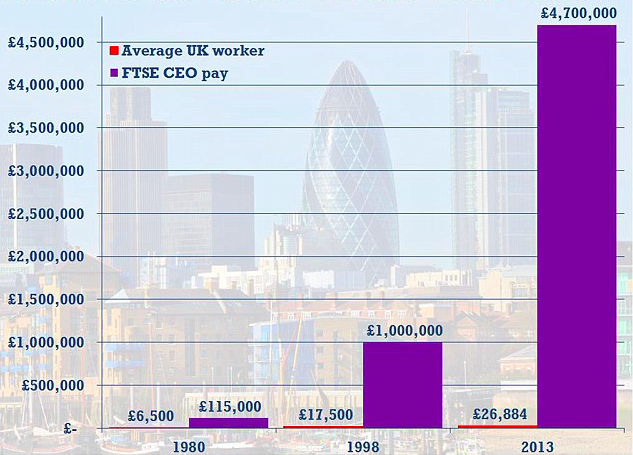She promised radical reform in boardrooms and that "big business needs to change", but the plans unveiled today maintain the status quo in the City.

Theresa May has dropped proposals to put workers on corporate boards and force companies to have votes on corporate pay — unions have condemned her of “bottling it”.
The corporate governance reforms being unveiled today by the government were been branded “feeble” by the TUC and “just more crony capitalism” by Labour.
Two key proposals to make corporate governance more democratic have been dropped: the first, to give workers places on boards of companies and, the second, to make shareholder votes on corporate pay binding.
The promises being reneged upon come from a speech Mrs May made in July 2016 during the leadership race in which she attacked inequality in Britain.
“We need a government that will deliver serious social reform,” she at the time said. “It is not anti-business to suggest that big business needs to change.”

Trade unions and opposition parties have attacked the watered-down proposals as “business as usual”. TUC general secretary Frances O’Grady said:
“This is a far cry from Theresa May’s promise to crackdown on corporate excess. It’s a feeble proposal, spelling business as usual for board rooms across Britain.”
The remaining proposals include: forcing companies to publish the pay ratio between their highest and lowest earners, and having a register of businesses that have significant shareholder opposition to executive pay. But this is a cop-out, O’Grady said:
“The Prime Minister’s pledge to put workers on company boards has been watered down beyond all recognition. This now amounts to little more than a box-ticking exercise.
“Firms will rightly have to publish the pay gap between bosses and ordinary workers, but we are concerned that the government’s calculations will take the focus off the lowest-paid.”
Labour shadow business secretary Rebecca Long-Bailey described the ‘reforms’ as “just more crony capitalism from the Tories, who once again prop up the rigged system for the few at the expense of the many”. She added:
“The Tory plan is a fraud, watering down an original promise to increase workers’ voice to a lone representative on the board of directors or a separate employee advisory council. Each of these will be easily outvoted or ignored.”
Leader of the Liberal Democrats, Vince Cable described the policy as “strong on rhetoric, weak on action”.
Business groups were perhaps unsurprisingly happy with the news.
Stephen Martin, director-general of the Institute of Directors said that he welcomed the proposals as “pragmatic” and “sensible”.
It’s back to business as usual for the Tories’ friends in the city then. The announcement kills once and for all any pretence that the government wish to stand up for working people.
Read more: Professor Prem Sikka on corporate democratisation.
Oscar Webb is a reporter at Left Foot Forward. He tweets here.




3 Responses to “May drops promise to curb corporate excess, slammed by unions as “feeble””
keith perrin
“We need a government that will deliver serious social reform”.
At last, Theresa May was right about something. Unfortunately, it’s not her government that can deliver.
U turn after u turn. It’s time for Labour to take the people and the country forward.
Will
The only way this government will ever change their business policys is after they have changed their feelings towards fellow man—–so never then.
David Davies
Saint Theresa has gone for another walk, and the light breeze has blown away her common sense – again. In the days when entrepreneurs were engineers and inventors, there was some reason for them to be rewarded for their efforts.
Now they are asset strippers who have been gifted enterprises based upon decades of public investment, they just play the rounds of `remuneration committees’, who only operate on the back scratching basis. Poiticians enter the revolving door, where they ae amply rewarded for their previous contacts.`Managers retire or take redundancy, and are back in their old jobs before the door kisses their cheeks on the way out.